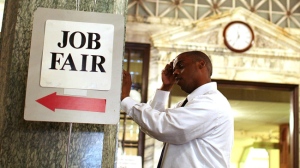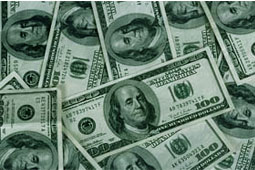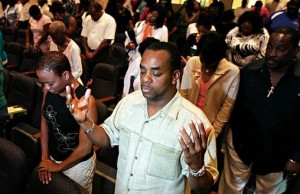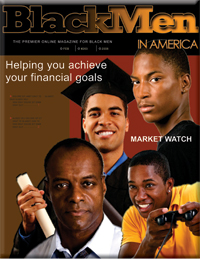
… But When I Became A Man,
I Put Away Childish Things
By Purnell
Peeking out from behind rough-hewn slave cabin windows and gazing through the elegantly curtained windows of plantation mansions black slaves gasped at the sight they beheld…a sight they did not quite understand, but intuitively sensed constituted a power far greater than that of their masters. It was a martial tableau in motion that set the minds of anxious slaves racing in a search for its exact meaning. Unbeknownst to these confused blacks, their deliverance was at hand. Conversely, the entire unfolding circumstance was an apocalyptic nightmare for their panic-stricken masters. With regimental colors waving above them, a phalanx of soldiers in blue was entering Savannah; white men and black men, all wearing the blue uniform of the Grand Army of the Republic had arrived in coastal Georgia. A sound made by thousands of clomping horses hooves filled the countryside and mixed with the muffled footsteps of 70,000 infantrymen. The noise of teamsters whistling and shouting at their mules to keep up the pace filled the air and combined with the creaking and grinding of supply wagon wheels and the rattling of light artillery caissons. Metallic clattering made by the sabers of hundreds of mounted Union officers heightened the ominous sense of foreboding that rode into Savannah that day. A massive Union military land force had overrun the coastal Georgia area signaling to friend and foe its willingness to engage any confederate unit that summoned the courage to challenge the presence of its seasoned Yankee war machine.
For the slaves of Georgia it was their first time seeing the fearsome display of the concentrated might of a Union army on the move in the heartland of the Confederate south.Entering the city of Savannah was the formidable, battle-tested Union Army of the Tennessee, 3rd Division of the 14th Corps, led by Major-General William T. Sherman. The march through Georgia to the sea had been brilliant. The approach to Savannah had been uneventful though token resistance from small confederate units had to occasionally be suppressed. The ferocious reputation of Sherman’s well supplied army had preceded its impressive arrival. Columns of U.S. infantrymen from the northern states with regimental colors waving above their heads, stretched for miles. Most of them were in the Deep South for the first time in their lives. Plantation owners who had previously proclaimed sworn oaths to die fighting the “damned Yankees”…, who spoke in disparaging terms of Union fighting prowess, took one look at the stunning display of Union military strength and promptly abandoned their plantation estates. Everywhere in the coastal area of Georgia, confederate military presence yielded to the imposition of Union military might upon the state.
Major-General William Tecumseh Sherman was under the direct command of President Abraham Lincoln with orders to break the will of the south to continue the war…and he was doing so with harsh efficiency. Curious slaves had no insight into the strategy and tactics of the opposing armies; but they could clearly see which side seemed most likely to win the conflict. They enthusiastically aligned themselves with Major-General Sherman and fell in behind the Union Army rear guard, willing to follow them no matter the costs or the perils. Any destination was better than their assured slave status if they remained on the plantations. When the Union army moved, they moved…when the Army rested, they rested…when the army was in battle; they helped, watched and waited. Their continued security was contingent upon their remaining within the U.S. Army’s protective perimeter, even if their swelling number sometimes interfered with military maneuvers. Improvements to the situation of these blacks, labeled as contraband by the U.S. government, would get better… better beyond their imagination. And then it would all crumble under the weight of political betrayal and the misfortune caused by the tragic assassination of Republican President Abraham Lincoln.
Fires in Atlanta, Georgia were probably still smoldering when the massive Union Army of General Sherman reached the outskirts of Savannah. The date was December 21, 1864. The next day, December 22, 1864, after offering only skirmish type token resistance to Union forces, the Confederate military completely abandoned the city. In the wake of General Sherman’s successful military “March to the Sea” campaign, were huge numbers of black former slaves and vast swaths of abandoned lands. Southern aristocrats, managers of the American “slavocracy” had hurriedly surrendered their privilege and power rather than stay and face the wrath of Union military might. The social/political vacuum created by the southern plantation class’s displacement was the source of these enormous numbers of emancipated slaves who immediately attached themselves to Sherman’s forces. These ragged black hordes were desperate to keep up with the pace of the advancing Union forces. Afraid and exhausted, they nonetheless had the good sense to refused to remain on the subjugated remnants of former plantations; the scenes of their human degradation.Anxious, happy and at the same time actively suppressing fear, these “contraband” blacks most certainly witnessed their sudden change of fortune in exuberant disbelief. They were probably wondering what could possibly be the eventual outcome of the horrific destruction that led to their sudden and almost providential gift of personal freedom from their previous condition of chattel servitude. This uncertainty lasted exactly 21 days for these former slaves of the coastal Savannah region. Within three weeks of the Union’s occupation of Savannah, a plan for the relief of the freedmen of Georgia and probably for the other nearly four million blacks in America, had been formulated. The blacks of Savannah had successfully organized for survival, economic security and political permanence.
So, why the excursion into Civil War history…? The answer, plain and simple, is to examine African American leadership; black leadership then and black leadership now. Since the political domain of America in 1865 was the exclusive territory of men, black men are naturally the central figures in the emerging political drama surrounding ex-slaves’ desire for independence through the acquisition of land by legal means. To fully explain the point to all of this, it’s necessary and proper to name the unheralded black men involved and to describe what these courageous, newly emancipated men succeeded in accomplishing… On the evening of Thursday January 12, 1865 at 8 p.m. in the city of Savannah, Georgia, a delegation of 20 men of African descent met Major-General William T. Sherman and the Secretary of War, Edwin M. Stanton, to confer on matters relating to the freedmen in the State of Georgia. All of the 20 were ministers. The two oldest men in the group were both 72 years of age and the youngest was 26 years old. Fifteen of the men were born in Georgia, 3 in South Carolina, 1 in North Carolina and one in Baltimore, Maryland. Their average age was 50.
Citing the names of these men is the only tribute that can be posthumously paid to them for their heroic efforts to establish a permanent place on the embattled American landscape for their people. The following black men confidently, diplomatically and wisely spoke for the entire population of freedmen in Savannah and by inference, the other nearly 4 million newly freed and socioeconomically disoriented slaves. Their names are in the order that they appeared in the official United States military record.
The men were: 1) William J. Campbell, 51, former slave 2) John Cox, 58, former slave 3) Ulysses L. Houston, 41, former slave 4) William Bentley, 72, former slave 5) Charles Bradwell, 40, former slave 6) William Gaines, 40, former slave 7) James Hill, 52, former slave 8) Glasgon Taylor, 72, former slave 9) Garrison Frazier, 67, former slave 10) James Mills, 56, free born 11) Abraham Burke, 48, former slave 12) Arthur Wardell, 44, former slave 13) Alexander Harris, 47, free born 14) Andrew Neal, 61, former slave 15) James Porter, 39, former slave 16) Adolphus Delmotte, 28, free born 17) Jacob Godfrey, 57, former slave 18) John Johnson, 51, former slave 19) Robert N. Taylor, 51, former slave 20) James Lynch, 26, free born. Garrison Frazier, being chosen by the persons present to express the group’s common sentiments upon the matters under consideration, responded to questions for the entire group.
Go to http://www.civilwarhome.com/shermanandministers.htm for a reading of the official U.S. military record transcript of the proceedings of the meeting. It’s an astonishing account of a little known epic in American history and even more so, an unusual glimpse into the leadership style of serious, capable, devoted 19th century American black men determined to advance the interests of their people. Secretary Seward, Major-General Sherman and the 20 black ministers chosen to honorably and faithfully represent the concerns of blacks throughout the South, deliberated on the circumstances of freedmen and came away from the table with an agreement that would literally assure an opportunity for the economic, social and political integration of freed blacks into the fabric of post-civil war life in the America south. This astonishing agreement granted 400,000 acres of land, with titles backed by the U.S. government, to black families of the region. The land itself was, “a strip of coastline stretching from Charleston, South Carolina to the Saint John’s River in Florida, including Georgia’s Sea Islands and the mainland thirty miles in from the coast.” These 20 ministers had succeeded in acquiring for ex-slaves some of the best farming land in the American south with access to the Gulf of Mexico for eventual commercial fishing!Negotiations between General Sherman and Secretary Stanton on the one side and the 20 ministers of the other side, took place on the second floor of the Charles Green’s mansion on Savannah’s Macon Street on January 12, 1865 at 8:00 in the evening.
None of these ministers actively sought to be a member of the negotiating team. Not a single one of them was seeking notoriety, nor were they positioning to be a power-broker between the black masses and elite whites. All were nominated and then selected at-large by the colored people of Savannah. The entire organizing effort was formulated at the 1st African Baptist Church of Savannah on January 2, 1865. An overflow crowd of several hundred pressed near the entrance to the church hoping to hear what was going on in the meeting. A transcript of the proceedings is available from the Savannah Education Association. Amazingly, one day after that meeting the people of the city had secured a building to be used as a school from the U.S. Army and had arranged for the black children of Savannah to march through the middle of town their new school. Never had a prouder moment been beheld by the freed black people of that city. Adult black citizens of Savannah were making a profound civic statement and taking a firm political stance. The public parading of the children to their new school established that it as a “new day” for the blacks of Georgia and one of the critical objectives of the newly liberated slave parents was the education of their sons and daughters.
Obviously, it is implausible and unfair to attempt to make comparisons between black men born nearly two centuries apart. It is however, fair to examine and compare apparent quality of character over that same expanse of time. This website, BLACKMENINAMERICA.com is for and about black men and can therefore legitimately explore black men past and present within the context of the United States. So, though the separation of black men then and now roughly consists of 3-4 generations, the ideological, behavioral, cultural divide is much wider. Imagine a situation analogous to the gravity of the situation of Dec-Jan 1864-65 in Savannah occurring in the present; could 20 honorable black men be found to represent the collective interest of black America? …What about just 10 prominent, trustworthy, wise, respected black men who could shoulder the burden of deciding the fate of the entirety of their brethren??Could we/you/I be called upon to reliably, confidently name 10-20 American black men upon which such an immense responsibility could be imposed?? If the request were to generate the slightest hesitation…the answer would have to be a categorical NO. There is justifiable reason to cautiously approach an analogous selection process in 21st century America; duplicity, arrogance, buffoonery, charlatanism, hubris, opportunism and obfuscation tend to characterize the black leadership foisted upon the black community of today by the power elite of the American Left. As a result, in many cases, the motives, intentions and strategies of black America’s appointed/anointed leaders… are suspect.
In an informal survey of several longtime professional black men, the question was asked, “Can you name 20 living black men to whom the fate of black America could be summarily entrusted?” After considerable angst, friendly disagreement and the winnowing down of the list of candidates, only two men firmly emerged as indispensable to such a task. Before the two “must haves” are named, it is only fair to provide the full slate of original candidates. The black men included on the list and in no particular order are, Claude Anderson, Carl Nelson, Louis Farrakhan, Dick Gregory, C.T. Vivian, Wyatt Tee Walker, Andrew Young, Robert (Bob) Woodson, Colin Powell, Joe Madison and Neely Fuller…a powerful lineup of black men reflecting courage, intellect, accomplishment and respect across the board. While any of these men could be confidently selected for something comparable to a “Special Field Order #15” type committee, the two that had to be included were Minister Louis Farrakhan and former ambassador Andrew Young. It is an interesting feature of the informal survey that these two dissimilar, but prominent, black men seemed to hold the unreserved trust of the black men used in the inquiry. Certainly, there are other black men in America who could measure up to the standard of performance of the “Savannah 20” in January 1865. The problem here is that mature, middle class, college educated black men had to really soul-search to name 20 good brothers who they confidently felt could be relied upon to honorably represent black America’s total interests if called upon to do so. The hesitation and uncertainty was not reassuring.
If the average life-span of American black men can be conservatively estimated to be 50-60 years, and further, that the meeting with Sherman and Seward was approximately 150 years ago, then the human factor involved here is a little more than 3 generations. What has happened to black men in a century and a half to erode racial unity, diminish political maturity and enfeeble the designated black leadership in most black communities? What might account for the fundamental difference between the strength of character of the black men in the “Savannah 20” and the black men of today?
In 1865, the vision of a robust black community emerged from religious faith, family cohesion and nationalistic pride. Today, such is not the case. In fact, today a cottage industry has sprung up around the production of pathology-based theories that attempt to explain the lack of collective political sophistication in the black community. Despite attempts at convoluted, scholarly explanations for the lack of evidence of elective judgment and maturity, the answer being sought might be much simpler. It is commonly known that the black community, generally speaking, gets its political “marching orders” from celebrities, media types and an assortment of carefully selected “Hollywood” A-level performers; past and present, black and white. Though actors are paid to act; to publically make believe that they are someone other than their real selves, once on the silver screen their personal values/opinions acquire extraordinary legitimacy and are subsequently presupposed to be those values are the most suitable for the general public. Usually their devoted fans don’t even know the real identity of these actors because commercial success usually requires that they discard their real names early in their careers and invent alluring stage names to enhance their personal mystique. Nonetheless, the strange, but fixed, grip of Hollywood on the psyche of the American public continues.
The better these performers are at making audiences believe that they have channeled a fictional, cinematic character, the more they are paid and the closer to a movie industry award they get. Once a year they all meet in Hollywood to admire each other and to determine who was best at making the public believe that they are the believable at not beingthemselves; the Oscars. The black community is especially vulnerable to this schizoid, nonsensical, though extremely useful, approach to elective politics while American black leaders are effectively mute on the implications of this imbedded weakness. While all Americans are manipulated by the band wagon effect of celebrity on American elective politics, it appears that black Americans may be particularly susceptible to this phenomenon.
In the 150 years since the epic meeting of the “Savannah 20” with Major-General Sherman and Secretary of War Edwin Stanton, an all-out assault upon the black intelligentsia has been waged. Education in black enclaves has alarmingly deteriorated while “experts” debate resource allocation and “best practices.” Black boys have been ruthlessly demoralized by a feminist campaign aimed at the elimination of masculine tendencies from their developing personalities. Social discourse is now dictated by a lower-class ethos generated out of a profane entertainment genre which values vulgarity above showmanship and true talent. Social graces are now considered passé, opening the door for crude behavior and the debasing of black women. Brothers and sisters can now be a child TWICE…once as an adolescent and then again as an adult while black sociological/psychological practitioners fail to acknowledge or attempt to address this peculiar developmental deficiency.
Herein lies the crucial difference between the “Savannah 20” and today’s crop ofblack leaders; those black men of 1865 were grounded in reality, mature in thought and behavior, courageous by virtue of the honor of service to their people and possessed of an ideal vision of the future of the black community. There was not a childish, self-serving, duplicitous slacker among them. Regrettably, the same cannot be said of the vast majority of the black men recognized today as leaders of African American communities. Black America may never witness the assemblage of such a noble, earnest group of men again. But… on the evening of January 12, 1865 twenty of our best and finest examples of black manhood stood tall and when called upon by their brethren, requited themselves admirably in the negotiating of an agreement that they thought would be binding for all time. Regrettably, in a little less than 6 months after the assassination of Republican President Abraham Lincoln and approximately 9 months after the 16th President of the United States had signed it into law, Special Field Order No. 15 was merely a contentious Civil War memory for those living in the region. Andrew Johnson, a nearly impeached democratic President and Lincoln’s successor, aligned himself with the South’s secessionist Democratic plantation class and felt obligated to rescind Special Field Order No. 15 in the fall of 1865. The reversal of that Republican initiated order by President Andrew Johnson returned 400,000 acres of prime farmland to the rebel plantation owners…the very people who had declared war on the United States of America.
 Raynard Jackson is President & CEO of Raynard Jackson & Associates, LLC., a Washington, D.C.-based public relations/government affairs firm. He can be reached through his web site, http://www.raynardjackson.com. You can also follow him on Twitter at raynard1223.
Raynard Jackson is President & CEO of Raynard Jackson & Associates, LLC., a Washington, D.C.-based public relations/government affairs firm. He can be reached through his web site, http://www.raynardjackson.com. You can also follow him on Twitter at raynard1223.








































